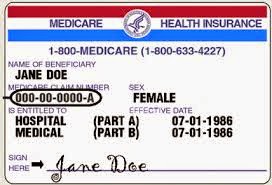Latest Customer Reviews
Recent Posts From the Insurance Industry
What is Life Insurance?
LEVEL TERM INSURANCE Term life insurance is typically used to cover financial obligations for a period of time such as a mortgage or the number of years to raise a family. The premium and death benefit are guaranteed to never change during the term of the policy. These policies are generally available for 5 to 30-year periods. Once the term expires, you should plan on ending the policy because the premiums skyrocket if you have no other choice but to continue the policy.
Typically, the reason someone continues it after the term period expires is because they are terminally ill and are expected to die within the next 12 months or have extended a debt for a short time.
FINAL EXPENSE, WHOLE LIFE, BURIAL INSURANCE OR SENIOR LIFE INSURANCE

This is generally used to cover burial or cremation expenses and is issued in small amounts of $5,000 to $50,000. These policies have simplified underwriting, no medical exams and are very easy to get even if you have a serious illness. In fact, we carry several GUARANTEED ISSUE life insurance policy with no health questions. One of your first decisions is to determine how much life insurance you should apply for.
Using the examples displayed on this website, you’ll find that most funerals cost between $5,000 and $10,000 plus burial fees that generally run from $500 to $2000. If you think you’ll leave behind bills such as credit card balances and other obligations, you may want to apply for an amount that will cover them as well. The average cost of a burial is about $7,000 not including the plot and the vault. If your wish is cremation, the average is $2,000-$3,000. Remember to take into account inflation. So if you are 55 years old today, you should consider purchasing about 2-3 times the average cost in today’s prices.
NO LAPSE UNIVERSAL LIFE (NLUL) The best of both worlds! Universal Life policies were originally sold as part investment, part life insurance. Over the years we have seen disastrous situations where Universal Life policies did not perform as well as the agent anticipated, and most recently policyholders are receiving notices that their policy is about to lapse unless they send in large amounts of premiums. Unfortunately, these policies were not projected on a guaranteed basis, and those policyholders are now seeking other coverage at a much older age.
Unlike traditional Universal Life insurance, No Lapse Universal Life is based on guarantees. When you purchase a NLUL, the premium and death benefit will never change, and the policy will never end (unless you live past age 121). A No Lapse UL is designed not to accumulate cash value, rather most of the premiums are going toward the cost of the insurance instead of the investment portion. This is also an excellent tool for wealth transfer and estate planning.
You need to name a beneficiary. The proceeds of your policy will go directly and income tax-free to the beneficiary(ies) you designate on the application. You should name at least one primary beneficiary and one contingent beneficiary. As difficult as it may be to imagine, you and the primary (for example a husband and wife) could be simultaneously killed in a car accident.
If there is no contingent listed the proceeds would go to your estate and thus end up in the hands of an undesirable beneficiary. This is especially important if you have minor children. Try to think of a family member or trusted adviser, possibly a person who would raise your children or who will be responsible for settling your estate and executing your final wishes.
Look closely at life insurance. Life insurance is an affordable and very simple way to provide the money that will be needed someday to pay for your funeral, burial, and other final expenses. Most people own life insurance. In fact, sixty-nine percent of American families own some type of it, according to the Federal Reserve’s analysis of its Survey of Consumer Finances. The reasons for its popularity are many, but two of the most common relate to its flexibility and affordability.
Life insurance is flexible.
Life insurance protects millions of families from financial hardship when the insured dies. It’s also used to provide money for a specified purpose (to pay taxes, funeral costs, etc.) and to protect a business against economic loss if one of its owners or important employees passes away. Some types of life insurance are used expressly to cover loans and obligations, while other types have a savings component that builds cash value to help families meet financial emergencies, pay for special goals, or provide income at retirement. Life insurance is a very flexible financial planning tool.
Life insurance is affordable
Life insurance is also very affordable. For only a modest monthly premium you can provide sizable amounts of cash that can be used for a variety of good purposes, such as your final expenses. Putting life insurance to work for you and the plans you are making is easy.
MEDICARE SUPPLEMENTS (MEDIGAP) AND MEDICARE ADVANTAGE PLANS
The benefit of using an independent agency is it allows you to compare Medicare supplement policies from several carriers. We represent United American, American Continental, Aetna ,United Commercial Travelers, Bankers Fidelity, Equitable Life, The Omaha Company and many others.
There are two basic types of Medicare plans. Medicare Supplements and Medicare Advantage. Both are designed to pay for services that traditional Medicare parts A and B alone do not cover. These two types of plans work very differently and one may be a much more appropriate fit over the other based you YOUR specific needs.
Medicare Supplements, also called Medigap policies, allow you to use any physician, at any facility that accepts Medicare. If your physician wants you to have a Medicare approved service, as long as your physician abides by the Medicare guidelines you’ll get the care both you and your doctor decided on. Medicare Supplement Insurance companies do not require referrals to specialists or pre-authorization for services. Medicare eligible individuals who are snow birds and need to receive routine care like outpatient therapy (non-emergent) services while away from their resident home state should consider the Supplement before a Medicare Advantage plan.
Although the coverage for the same lettered Medicare Supplement Plan with one company is the same as an Medicare Supplement Insurance Plan with any other company, the rates vary between Medicare Supplement Insurance Companies. This means if you get a specific Medicare Supplement Plan such as a Medigap Plan G with Aetna, the Omaha Company or any other company, it will cover you exactly the same. This makes it very important to shop around to find the BEST QUOTE INSURANCE on Comprehensive Medicare Supplemental Insurance. Call or send your quote request to compare plans from multiple providers offering the same coverage because the biggest difference is the price!
A Medicare Advantage plan is usually an HMO or PPO offered by several companies in specific geographic areas. It can restrict your physicians and hospitals, and many times require pre-authorizations and referrals.
If you receive services that required a referral or pre-authorization neither the Advantage company nor Medicare will pay. In this case you would be responsible for 100% of the charges. Those who are reasonably healthy and use only a small amount of medical services throughout the year may consider an Advantage plan the best fit. For some this is a natural transition because they are used to this system as it works just like the market place plans through the Affordable Care Act and employer group policies that have used managed care HMO, PPO and POS plans for years.
WHAT IS LONG TERM CARE?
Long-term care is defined as needing either assistance or supervision from someone when you are unable to care for yourself as a result of a chronic illness, physical injury, cognitive or mental impairment, or just due to old age and frailty. This type of care is considered custodial care, or non-skilled care. Custodial or non-skilled care IS NOT COVERED BY MEDICARE. Long Term Care Insurance or Home Health Care insurance provides benefits for individuals who cannot complete everyday tasks without assistance, due to reduced physical and/ or intellectual functioning. These services can be rendered at home, independent or assisted living communities, or in a residential facility.
Disability Income insurance provides a monthly income while you’re considered “Disabled” and not able to work. There are 2 kinds of disability insurance. Short Term disability is meant to kick in between 7 and 30 days from the time you became disabled and last for about 3-6 months. Long Term Disability can start as soon as 30 days after you become disabled, but it’s intended to furnish you a monthly income for the next 2 to 5 years or even until retirement age like age 67. The amount you’re eligible for is based on your past income. Most companies allow you to purchase about 67% of your gross earned income and may limit the monthly benefit if your income exceeds their allowable amount.
When you need long-term care, you usually need help with your activities of daily living. These are items such as bathing, dressing, toileting, continence, eating, ambulating, and transferring. Or, you may be able to do all of your activities of daily living but still need care due to a cognitive impairment. You may be able to dress yourself but you may not remember to take your medications. Most Long Term Care and Home Health Care policies sold today cover personal and homemaker services including cooking, cleaning, laundry and transportation. There are only a handful of companies that still offer this type of insurance.
Full Long Term Care (LTC) insurance is more costly than ever so purchasing it at a younger age will cost you less for a higher level of benefits. More popular and much more affordable are Home Health Care (HHC), sometimes called Short Term Care policies. They are also easier to qualify for due to health than a full LTC policy. A 60 year old applicant can purchase a HHC policy for as little as $25.00 per month. A small price to pay to solve a tremendous problem when someone lives alone and needs help with the activities of daily living.
If you are like most people, when you think of long-term care you probably think of nursing homes! However, the majority of long-term care that takes place is NOT in a skilled nursing home. People can now receive long-term care in a variety of settings other than nursing homes. The most popular setting for long-term care is in your own home. Additionally, many people live in beautiful assisted and independent livings facilities where they have their own apartment usually equipped with a small kitchen, living room, bedroom and private bath. Independent and assisted living communities also have community dining available along with transportation and group activities.
WHO NEEDS A LONG TERM CARE INSURANCE POLICY
All ages can need long-term care! However, usually when people think of long-term care they tend to think of it as care for the elderly. This is not the case. In fact, almost half of the people that need long-term care are under the age of 65. An example of this is Christopher Reeves who needed long-term care due to his horseback riding accident. You’ve probably known of younger people in your community that need long-term care because of things like strokes, car accidents, skiing accidents, multiple sclerosis or a variety of other disabling diseases.
We are living longer than we ever used to due to medical technology, increased longevity and the fact that we take better care of ourselves now than ever before. Therefore, as our society ages, even more people will need long-term care. Women are more likely to need long-term care services than men because they have a longer life expectancy. Women tend to have more chronic debilitating conditions, like arthritis, fibromyalgia and osteoporosis.
Men tend to have more acute types of health conditions that quickly lead to death, like a heart attack or stroke. Many times women marry men that are significantly older than the husband. Because the general life expectancy of a women being longer than a man’s, it is very common for women to care for their older husbands at home. After one spouse passes away is when the big dilemma occurs. Who will take care of the remaining living spouse? Or can you imagine needing your children to help you bath, use the toilet, and is it fair to expect them miss work or other family activities? A modest insurance policy to free them of this is a small price to pay for simple piece of mind.
TAX DEFERRED FIXED AND INDEXED ANNUITIES
Together with Life Insurance and Long Term Care the missing piece of an aging retiree is what to do with the money they have been able to save during their income earning years. Some want to pass the money to their children tax free and outside of probate. Others need to supplement the income of a surviving spouse when the other one dies and takes their pension and SS income with them to the grave. Still, others need to make certain they won’t outlive their savings.
All of those situations mentioned above want to secure what they have, earn a modest rate of return, and not take a chance of losing any of their life savings because of the market volatility that goes along with mutual funds and stocks.
There are there basic types of Single Premium Deferred Annuities primarily used during retirement years.
Multi Year Annuities guarantee a fixed rate of interest for a certain period of time. You will earn the exact same percent of interest for a certain number of years. No more, no less. These annuities are the most conservative and predictable type of annuity comparable to a CD.
Traditional Annuities guarantee the rate for one year then for the remaining number of years a lower minimum rate guarantee with floating rates that are credited when interest rates are higher.
Fixed Indexed Annuities offer a variety of interest earning options. This is a great way to be guaranteed to never lose a penny of amount that was invested and at the same time benefit by higher rates of return when the market is doing well. So when the Dow or S&P for example have a gain, so will the annuity but when the market takes a loss, you don’t.
Single Premium Immediate Annuities are designed for retires to begin taking a scheduled income guaranteed for the rest of their life while earning interest on the initial investment. These are designed to maximize the annuitant’s income for the rest of their life but we recommend these with great caution. Once you start the income stream there are very limited circumstances that will allow you to take the money any other way. This type of annuity is not designed to pass money to the next generation, but it is a good tool for those who have no heirs or family that needs the money more than they do on a monthly basis.
Annuities have evolved over the last several years and offer a tremendous amount of flexibility now. There are many features to accommodate the investor who wants some flexibility to take money during the annuity period without being penalized. Some of these features include access to the funds if the owner is confined to a nursing home, 10% to 20% free withdrawals each year for any reason, increased value as a death benefit, and higher interest earning guarantees while taking a fixed income stream that includes the ability to stop at any time and continue the annuity. Some like the idea of getting a monthly check for the interest earned every month while their initial investment still benefits from all the other annuity features.
Why purchase a Tax Deferred Annuity instead of a CD?
There are so many reasons to choose a tax deferred annuity (and why you shouldn’t) we’ll just mention a few of the basics. The interest that the CD earns is considered taxable income and must be reported every year as it’s earned even though it’s left there to accumulate. CDs are generally meant for short periods of time from 3 or 6 months to one year and surrender penalties renew every time the CD is renewed.
If there is a time you need some extra money from your annuity, most allow at least 10% free withdrawals with no penalty .Apples to apples, if you invest $100,000 today at 6% rate of return, in a 28% tax bracket, at the end of ten years the annuity would be worth $179,804 and the CD would only be worth $152,642. The proceeds of a ROTH IRA annuity ARE NOT TAXABLE TO A BENEFICIARY. What fantastic way to accumulate wealth tax free and pass it to your spouse or heirs 100% tax free.
What is Dental Insurance?
Dental Insurance is meant to reduce the amount you have to pay for dental services. Most policies cover cleanings, x-rays and annual exams at no cost and then pay a percent of of bill for other services like fillings, root canals and prosthetic devices like crowns, implants and bridges. The amount that’s covered is typically runs $1,000 to $2,000 per year depending on the company and plan. If your looking at purchasing individual dental insurance, not through an employer, you’ll likely have a one year waiting period before they cover major services, but routine care is usually available immediately or in the first 6 months.
The majority of dental insurance policies today are HMO or PPO dental plans. This means that there are predetermined cost that you will pay for each service you receive called a schedule of benefits and you must use the list of dental providers to get the full benefit. Most companies offer no charge exams and x-rays, and 2 no charge cleanings each year. Other than that each procedure has a fixed cost called a copay. They also have lifetime and annual maximums that the insurance company will pay out typically $500 to 1,000 per contract year.
The copays are based on a table called the Usual and Customary Charges based on the geographic area you live in. ompanies have limited their services to routine and basic coverage levels based on the treatment. Too many policies exclude some of the most commonly and costly services like bridges, crowns and partials. Unfortunately unless you read the portion of your policy called “Exclusions” before you agree to have the dental work done, you may find that the policy covered very little or nothing at all.
If you’re considering buying a policy just because you want your cleanings and exams at no charge, you are probably wasting your money. Most dentists will offer a discounted rate for services to private pay patients that will cost less than the annual premium for the HMO or PPO insurance. Instead, Best Quote Insurance offers only 2 companies for dental insurance. You can use any dentist or specialist of your choosing, and the maximum benefits available go up to $2500 and $1,500 per year depending on your age.
These policies are called indemnity or reimbursement insurance and pay a percentage from 50% up to 80% of the cost for the dental work. You get the bill from the dentist and submit a claim for reimbursement. The total benefit will be paid directly to you. On top of the dentist extending a private pay rate for your services, and you receiving the check directly from the insurance company, these policies can nearly cover the full cost of the bill.









